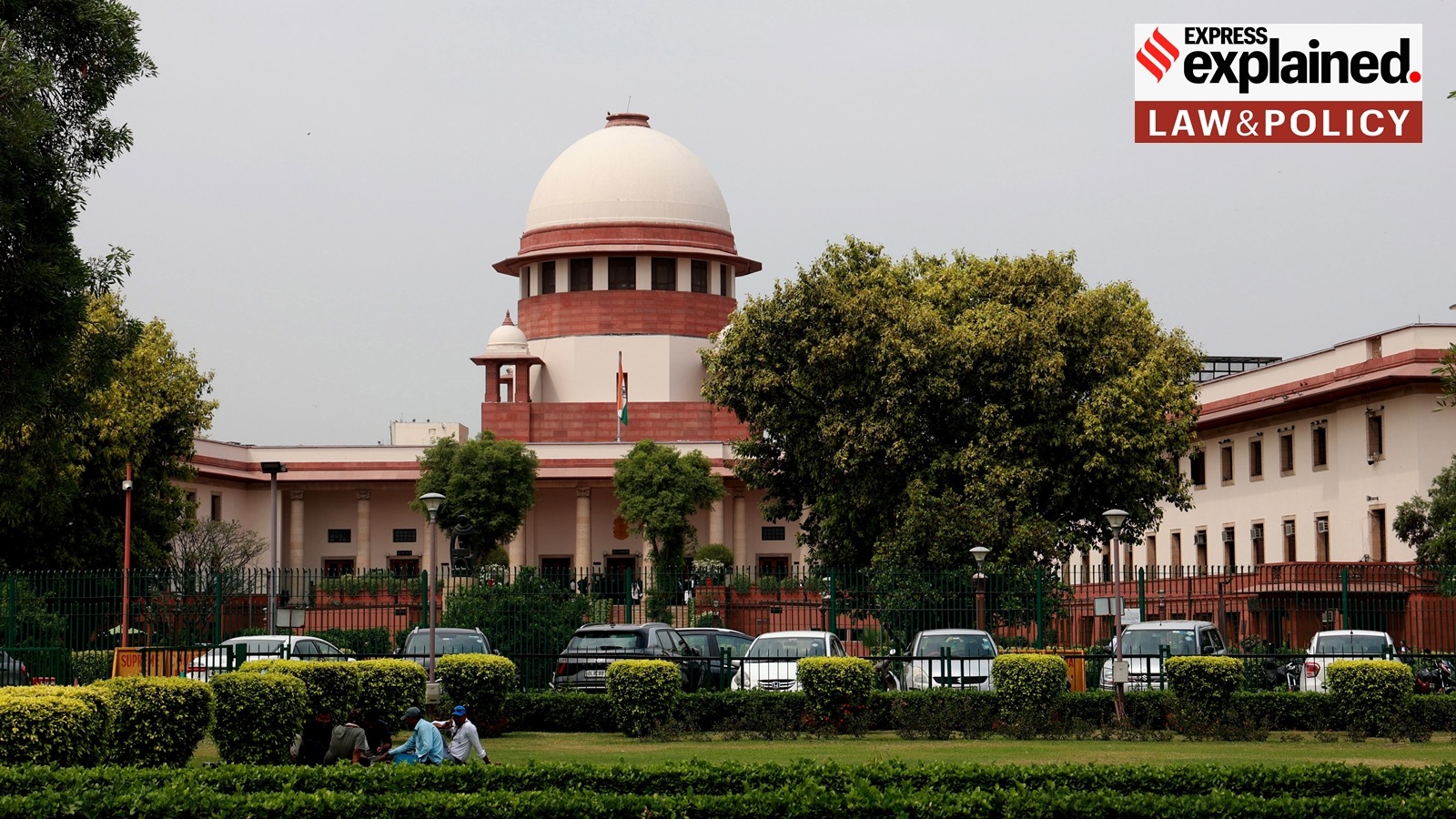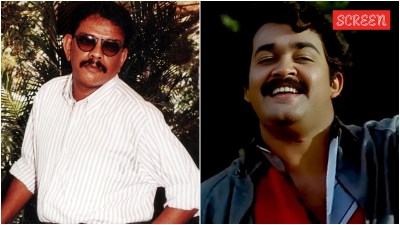Why Supreme Court allowed Bloomberg’s article against ZEE to remain online
In striking down the trial court order on the case, the Supreme Court also relayed a cautionary tale on SLAPP suits often used by big corporations to clamp down on free speech.
 The Supreme Court also observed that the Delhi High Court should have intervened after considering “the impact of the injunction on the constitutionally protected right of free speech”.(Express Photo By Amit Mehra)
The Supreme Court also observed that the Delhi High Court should have intervened after considering “the impact of the injunction on the constitutionally protected right of free speech”.(Express Photo By Amit Mehra)The Supreme Court Friday (March 22) overruled a trial judge’s order directing Bloomberg to take down its article on SEBI’s investigation into Zee Entertainment Enterprises (ZEE). The bench also recorded observations on how courts should decide pre-trial injunctions against media organisations, and the growing use of SLAPP suits “to prevent the public from knowing about or participating in important affairs in the public interest”.
Here is what you need to know.
SC expands on considerations for pre-trial injunctions
The apex court highlighted the three-pronged test used by the trial court judge in its order. The trial court judge on March 1 had observed that there was a prima facie case to justify an injunction against Bloomberg, that ZEE might suffer “irreparable loss and injury” if there is no injunction, and that the “balance of convenience” was in favour of ZEE — implying that more harm would be caused to ZEE if the injunction was not granted than would be caused to Bloomberg if it was granted.
Though the Supreme Court regarded this test as “well-established in the jurisprudence of this Court”, the bench also criticised the manner in which the trial court judge applied the test. They held that the test cannot be applied “mechanically”, and that the court must provide detailed reasons to justify how each prong of the test is satisfied before ordering a pre-trial injunction (a direction to the parties to perform certain actions before the trial begins). The order of the trial judge, the court held, suffers from such mechanical application as reasons were not provided.
The apex court also held that there are additional factors that judges must consider when considering pre-trial injunctions. Specifically in cases where media platforms and journalists have been accused of defamation, the court held that a balance must be struck between the right to free speech and the right to reputation (which is the basis for the crime of defamation). The court also observed that the Delhi High Court should have intervened after considering “the impact of the injunction on the constitutionally protected right of free speech”.
Supreme Court relays a cautionary tale about SLAPP suits
After commenting on the test for pre-trial injunctions, the bench highlighted the growing trend of Strategic Litigation against Public Participation, otherwise known as SLAPP suits. The order defines it as “an umbrella term used to refer to litigation predominantly initiated by entities that wield immense economic power against members of the media or civil society, to prevent the public from knowing about or participating in important affairs in the public interest”.
Connecting SLAPP suits to pre-trial injunctions, the court noted that such injunctions against journalists and media organisations can act as a “death sentence” to the material sought to be published. The apex court also stressed that courts must consider that injunctions can be used as an avenue to prolong litigation “to prevent free speech and public participation”.
The term “SLAPP suit” was coined by professors George W Pring and Penelope Canan from the University of Denver in the 1980’s, according to the American Civil Liberties Union website. In 1996, the two professors published a book together titled “SLAPPs: Getting Sued For Speaking Out”.
Some international forums have adopted anti-SLAPP laws to protect journalists and media organisations from litigation as a harassment tactic. In February 2024 the European Parliament overwhelmingly voted in favour and adopted the ‘Anti-SLAPP Directive’, which EU member states can now adopt and build national legislation around. The directive provides procedures to dismiss cases at the earliest stages when based on unfounded claims, place costs on litigants who initiate SLAPP proceedings and provide compensation to the victim in SLAPP cases.
ZEE’s defamation case against Bloomberg
An article titled “India Regulator Finds $241 Million Accounting Issue at Zee” published by Bloomberg on February 21 this year states that the Securities and Exchange Board of India (SEBI) had found “a hole of more than $240 million in the accounts of Zee Entertainment Enterprises Ltd.” This amount, which the Bloomberg report claimed was diverted illegally, is 10 times higher than the SEBI investigators had initially estimated, according to the same report.
Shortly afterwards, ZEE initiated defamation proceedings against Bloomberg claiming that the article was published in order to malign the entertainment giant. They claimed that the article presented speculation on the business operations of ZEE as truth and the allegations of illegal fund diversion did not have any basis.
Further, after the article was published, ZEE claimed that its stock price fell by roughly 15%, resulting in economic suffering on the part of the company and its investors. On these grounds, before the defamation trial could begin, ZEE requested the court to direct Bloomberg to take down the article.
On March 1, Additional District Judge Harjyot Singh Bhalla ruled in favour of ZEE and directed Bloomberg to take down the article. On March 14, the Delhi High Court upheld these directions when approached on appeal, leading to Bloomberg filing a petition at the Supreme Court against the trial judge order. The Supreme Court has now directed the trial Judge to pass fresh orders bearing in mind their observations about SLAPP suits and the factors to consider before granting a pre-trial injunction.
- 01
- 02
- 03
- 04
- 05






































